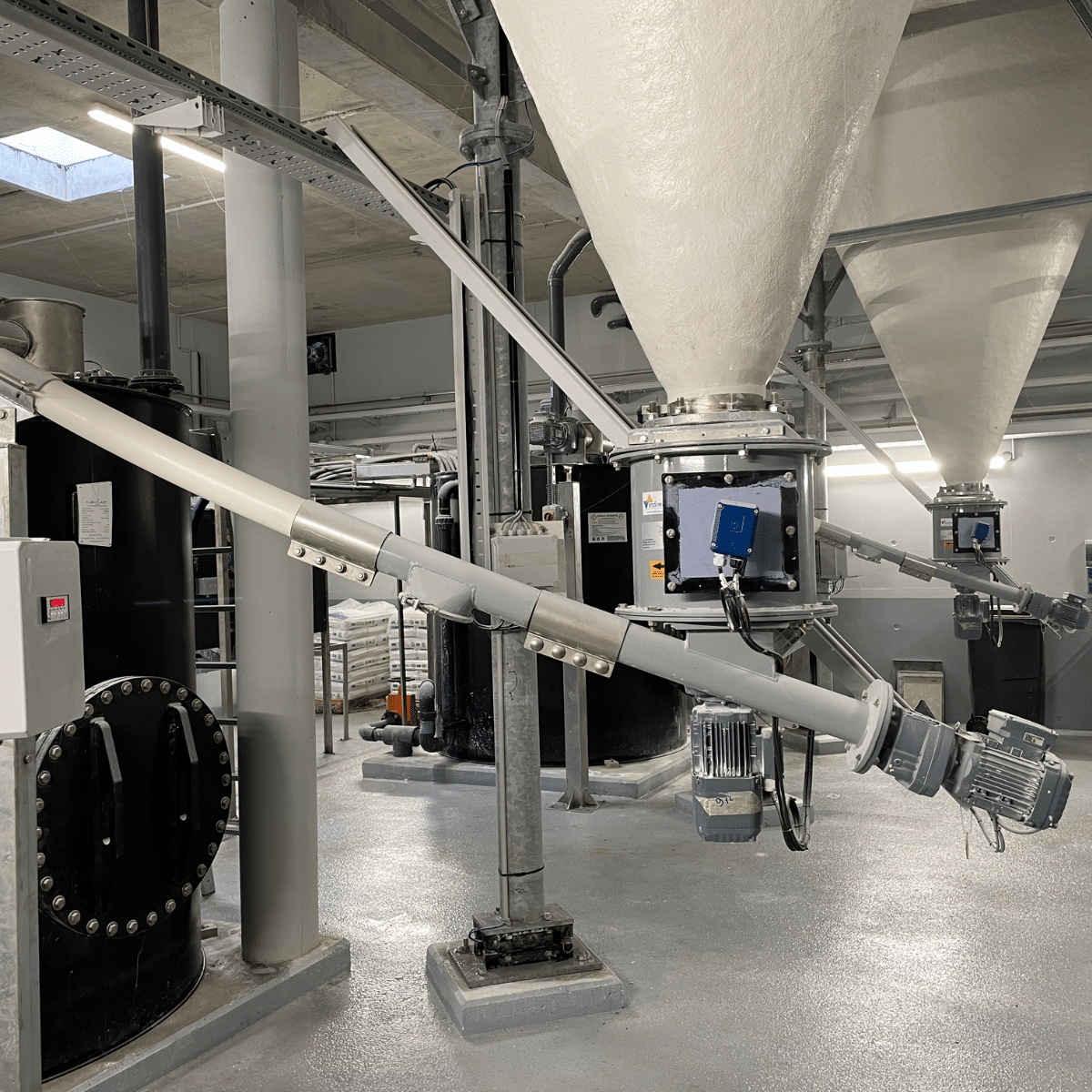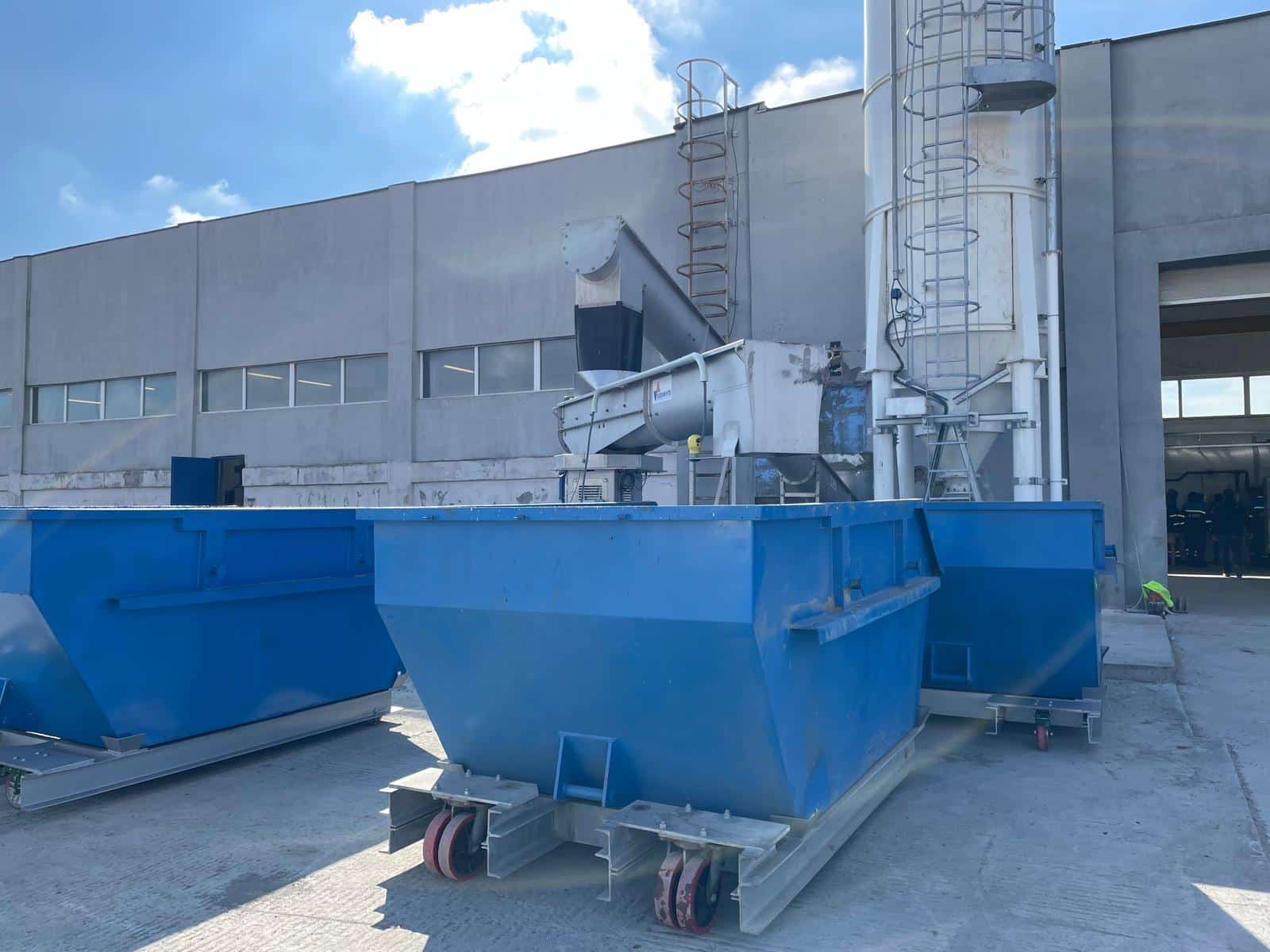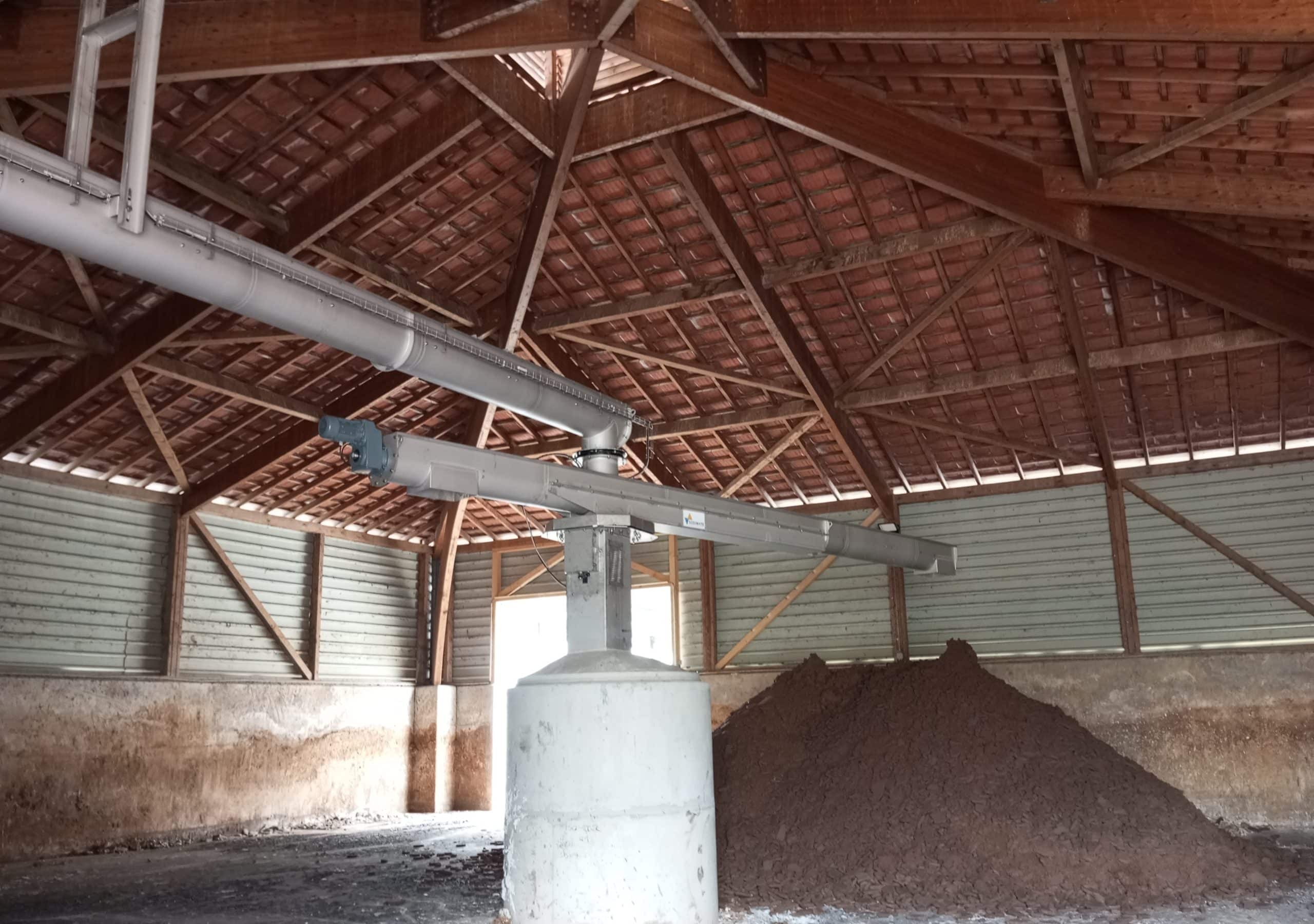Per- and polyfluoroalkyl substances (PFAS) form a family of persistent organic compounds known for their chemical stability and resistance to degradation in the environment. The growing requirement to reduce PFAS concentrations in water—whether drinking water or wastewater—has driven the search for increasingly efficient and reliable treatment technologies. Micro-grain activated carbon in a fluidized bed has emerged as one such solution. However, it remains crucial to effectively manage fine particles generated or present in the activated carbon to prevent clogging of downstream equipment.
PFAS: Pollutants to be treated as a priority
- Persistent nature: PFAS, widely used in various industries (coatings, firefighting foams, textiles, etc.), degrade very slowly in the environment.
- Health risks: These compounds can accumulate in the food chain and have been linked to various health concerns.
Reliable and sustainable treatment methods are therefore necessary to reduce PFAS concentrations in water.
Micro-Grain activated carbon in a fluidized bed
Principle and Advantages
- Effective adsorption: Activated carbon captures a wide range of organic pollutants, including PFAS.
- Intensive mixing: In a fluidized bed, micro-grains remain suspended, ensuring optimal contact with the water being treated.
- Operational flexibility: Flow rate, carbon dosage, and contact time can be adjusted based on treatment needs.
Challenge: The presence of fine particles
A key operational challenge lies in managing fine activated carbon particles, which can clog downstream filters and increase maintenance costs.
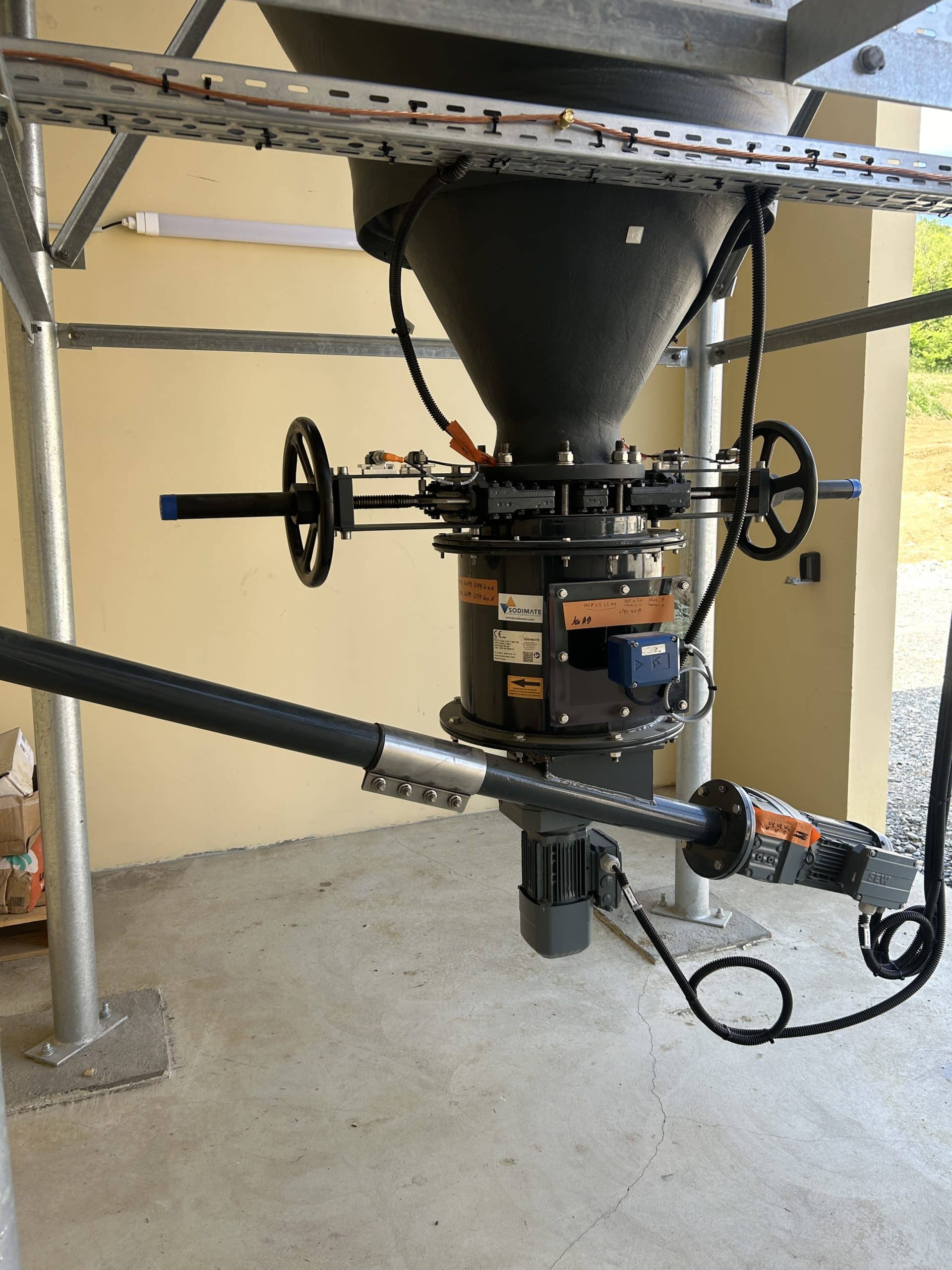
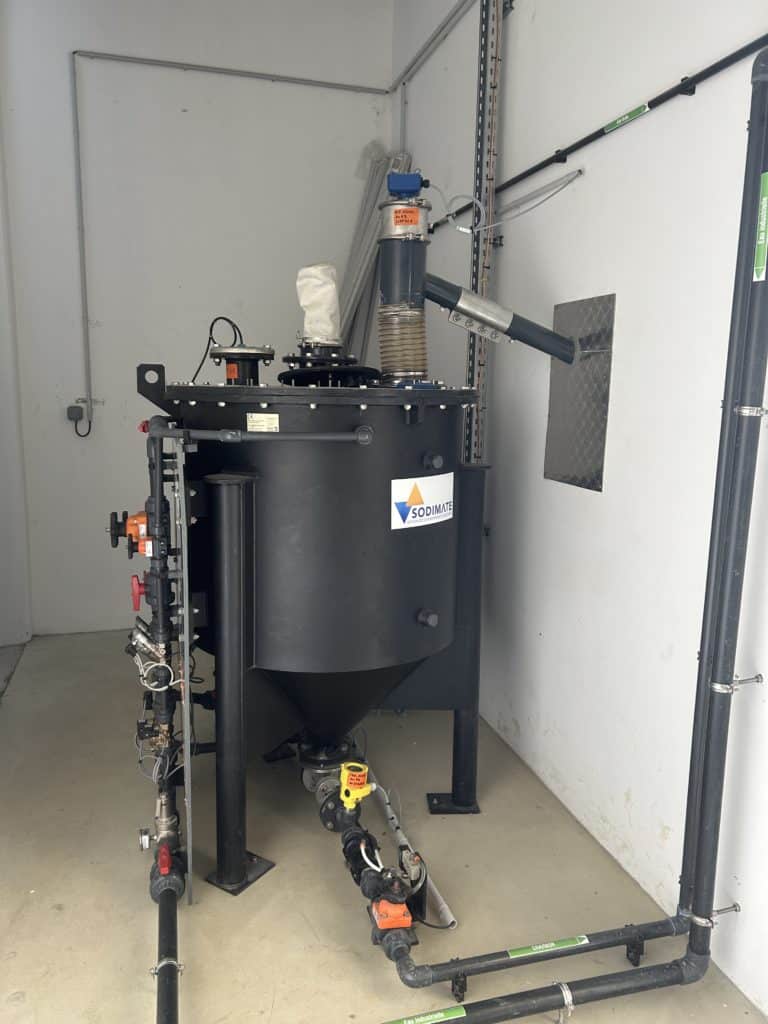
Sodimate develops an innovative refining system: Sodi-Microcarb
To address the issue of fine particles in the treatment circuit, Sodimate has developed a comprehensive injection and dosing system that ensures a refining step before introducing activated carbon into the fluidized bed reactor.
1. Controlled Feeding
- Micro-grain activated carbon is extracted from a storage silo or a big-bag unloading station.
- A dosing screw precisely and consistently regulates the carbon flow.
2. Sodi-Microcarb: The Core of the Refining Process
- In this separation module, micro-grain activated carbon undergoes a “dust removal” process that eliminates residual fine particles before they enter the reactor.
- This process significantly reduces the risk of clogging in sand filters or other downstream equipment.
3. Optimized injection
- The refined activated carbon is then conveyed to the fluidized bed reactor.
- The operator can adjust the amount of activated carbon injected based on the required treatment performance.
Operational and economic benefits
- Enhanced treatment quality: A fluidized bed free of fine particles ensures more uniform and effective PFAS adsorption.
- Reduced maintenance costs: The absence of fine particles prevents sand filter clogging, minimizing backwashing frequency and production downtimes.
- Operational flexibility: The dosing screw and Sodi-Microcarb enable quick adaptation to pollutant load fluctuations.
- Proven performance: Several dozen installations are already operational in France and Switzerland, confirming the reliability of the process.
Perspectives and conclusion
The treatment of PFAS using micro-grain activated carbon in a fluidized bed is one of the most suitable technologies for meeting increasingly stringent water quality standards. Thanks to Sodimate’s expertise in developing a refining system (Sodi-Microcarb) to eliminate fine particles before reactor introduction, operators can now:
- Maintain consistently high adsorption performance.
- Minimize operating and maintenance costs.
- Demonstrate the robustness of the solution across various sites in France and Switzerland.
This innovative solution ensures better process control and represents a significant advantage for operators aiming to efficiently treat PFAS while preserving their equipment.
For further information or technical support, please contact Sodimate.



